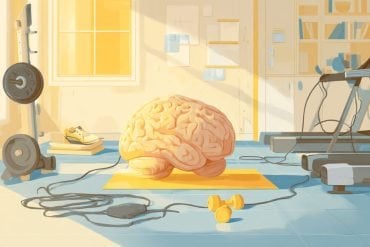Summary: Absolute pitch, once thought to be an innate ability or only attainable through early childhood training, may be learnable in adulthood. Researchers trained 12 adult musicians in an eight-week online program, focusing on recognizing pitch class rather than specific pitch heights. The training minimized reliance on relative pitch strategies and required repeated mastery of final levels to ensure learning.
Participants showed significant improvement, with some reaching near-perfect pitch recognition. Two individuals achieved fast and accurate identification across all twelve pitches, matching naturally gifted individuals. These findings challenge traditional views on musical cognition and suggest new possibilities for adult learners.
Key Facts
- Learnable Skill: Adult musicians learned to identify an average of seven pitches with 90% accuracy.
- Exceptional Cases: Two participants mastered all twelve pitches at near-native levels.
- New Training Approach: The method focused on pitch class learning and minimized external cues.
Source: University of Surrey
It’s been a long-held belief that absolute pitch – the ability to identify musical notes without reference – is a rare gift reserved for a select few with special genetic gifts or those who began musical training in early childhood.
However, new research from the University of Surrey challenges this, demonstrating that adults can acquire this skill through rigorous training.

The study involved a diverse group of 12 adult musicians, with varying levels of musical experiences, who participated in an eight-week online training program. Unlike previous studies, this training encouraged learning the pitch class – what absolute pitch is really about – rather than specific pitch heights.
It also minimised the reliance on relative pitch strategies, such as comparing notes mentally with external cues and feedback during tests, to determine the correct answers. Additionally, to minimise the chance of accidental success, participants were required to complete the final level of training multiple times.
Despite the widespread belief that absolute pitch is impossible to learn in adulthood, participants made significant progress, learning to identify an average of seven musical pitches with 90% accuracy or higher.
Notably, two participants achieved fast and accurate performance with all twelve pitches comparable to those naturally possessing this skill in the real world.
Dr Yetta Wong, principal investigator and lecturer and the University of Surrey said:
“Our findings provide compelling evidence that absolute pitch is not limited to a select few. With focused training, adults can acquire this remarkable skill, much like how they learn other complex cognitive skills.”
Dr Alan Wong, co-author of the paper and senior lecturer at Surrey’s School of Psychology added:
“This research has significant implications for our understanding of musical cognition and learning and opens doors for musicians of all ages to explore and develop their musicality to its fullest potential.”
About this music and auditory learning research news
Author: Melanie Battolla
Source: University of Surrey
Contact: Melanie Battolla – University of Surrey
Image: The image is credited to Neuroscience News
Original Research: Open access.
“Learning fast and accurate absolute pitch judgment in adulthood” by Yetta Wong et al. Psychonomic Bulletin & Review
Abstract
Learning fast and accurate absolute pitch judgment in adulthood
Absolute pitch (AP) refers to the ability to identify the pitch of a tone without external references. It is commonly believed that only individuals with special genetic makeup and early musical training within the critical period can develop AP.
Recent studies have begun to challenge the critical period notion by showing the possibility of AP acquisition in adults.
However, the learning effects could be attributed to learning of pitch height instead of chroma, extended working memory, relative pitch strategies, chance under repeated attempts, pre-existing AP abilities and/or specific cognitive profiles. An 8-week online computerized training program was designed to address these concerns and clarify learnability of AP in adulthood.
Twelve musicians on average spent 21.4 h completing 15,327 training trials. By the end of the training, they learned to name an average of 7.08 pitches (ranging from 3 to 12) at an accuracy of 90% or above and within a response-time (RT) window of 1,305–2,028 ms.
After training, pitch-naming accuracy was significantly improved by 128.1% (from .139 to .317) and size of error reduced by 42.7% (from 2.62 to 1.50 semitones) for the trained timbre, which generalized partially to an untrained timbre.
Overall, results provide more convincing evidence for the learnability of AP judgment in adulthood beyond the critical period, similar to most perceptual and cognitive abilities.







